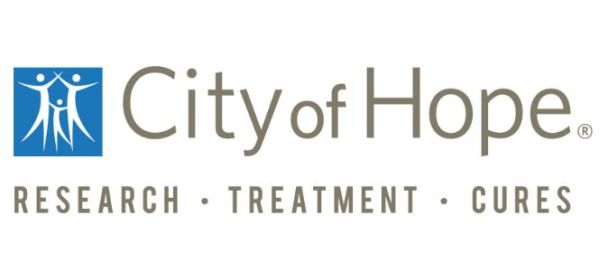
The City of Hope is delighted to announce the DNA Damage Response and Oncogenic Signaling (DNADRS) T32 Training Program that is funded by National Cancer Institute (T32CA186895). The program provides exceptionally motivated postdoctoral fellows with scientific knowledge, research training, and professional skills in the rapidly growing and interconnected fields of DNA damage response and oncogenic signaling (DNADRS). In order to apply, the candidate must have a completed doctoral degree before starting the fellowship program. Individuals from underrepresented minority groups are strongly encouraged to apply. The goal of the program is to provide innovative curriculum and mentored research that prepares an elite group of highly motivated fellows to become successful, independent researchers in cancer biology. Fellows will receive an institute-supplemented stipend ($58,000 per year plus a full benefits package) and $5,000 for research supplies.
The City of Hope was founded in 1913, is one of only 48 comprehensive cancer centers in the nation, as designated by the National Cancer Institute. The City of Hope is dedicated to making a difference in the lives of people with cancer, diabetes, and other serious illnesses. Their mission is to transform the future of healthcare by turning science into a practical benefit, hope into reality.The City of Hope is a private, not-for-profit clinical research center, hospital and graduate medical school located in Duarte, California, United States.
Eligibility:
- Applicants must have a completed doctoral degree before starting the fellowship program (all Ph.D. coursework must be completed, final orals must be passed and the dissertation signed).
- Applicants who are currently postdoctoral fellows must have less than one year of postdoctoral experience.
- S. citizenship or U.S. permanent resident status is required.
- Individuals from underrepresented minority groups are strongly encouraged to apply.
How to Apply:
To apply for the fellowship program, the applicant can download the application through the given link: https://www.cityofhope.org/doc/1430419334081-wcc_057804.pdf&blobheadername1=Content-Disposition&blobheadername2=Content-Type&blobheadername3=MDT-Type&blobheadervalue1=attachment;filename=T32-Training-Program-Application.pdf&blobheadervalue2=application/x-download&blobheadervalue3=abinary%253B+charset%253DUTF-8&blobnocache=true
Supporting documents:
- Include a pdf document (Application):
- Current curriculum vitae that begin
- A personal statement of your career goals and your interest in this program
- A paragraph summary of the research accomplishments of your dissertation research
- At the end of your CV, list the names of three references that address your potential as an academic scientist.
- A complete application requires a second pdf document describing
- Which mentor would you like to work with and why,
- A brief research plan (one page, using a Specific Aims page format) for a proposed project with this mentor. At that time, we will also request that you ask your three referees to forward letters to [email protected], but do not ask for the letters unless we send this request.
Submitting Details:
The applicants must send a complete application(single pdf)with required documents to dnadrs-at-coh.org
Financial Aid and Award Money:
- Fellowships are for three years with an institute-supplemented stipend ($58,000 per year plus a full benefits package) and $5,000 for research supplies.
- Fellows can choose a mentor from 17 faculty members, all of whom are performing cancer-focused, funded, high-impact research in DNADRS, and have a history of mentoring postdoctoral fellows.
- Required coursework includes curriculum in DNA Repair, Epigenetics and Cancer, and Oncogenic Signaling. In addition, trainees will participate in journal clubs, data clubs, professional development seminars, and monthly luncheons with mentors, national and international scientific conferences, and a yearly DNADRS Symposium.
Application Deadline:
Applications are accepted on a rolling basis. Selection criteria include:
- Academic training
- Research interest in DNA damage response and oncogenic signaling
- Strength of commitment to an academic research career
- Potential to contribute significantly to the field.
Link for More Information:
Contact Information:
If you have any questions regarding the program or the application, email dnadrs-at-coh.org.

